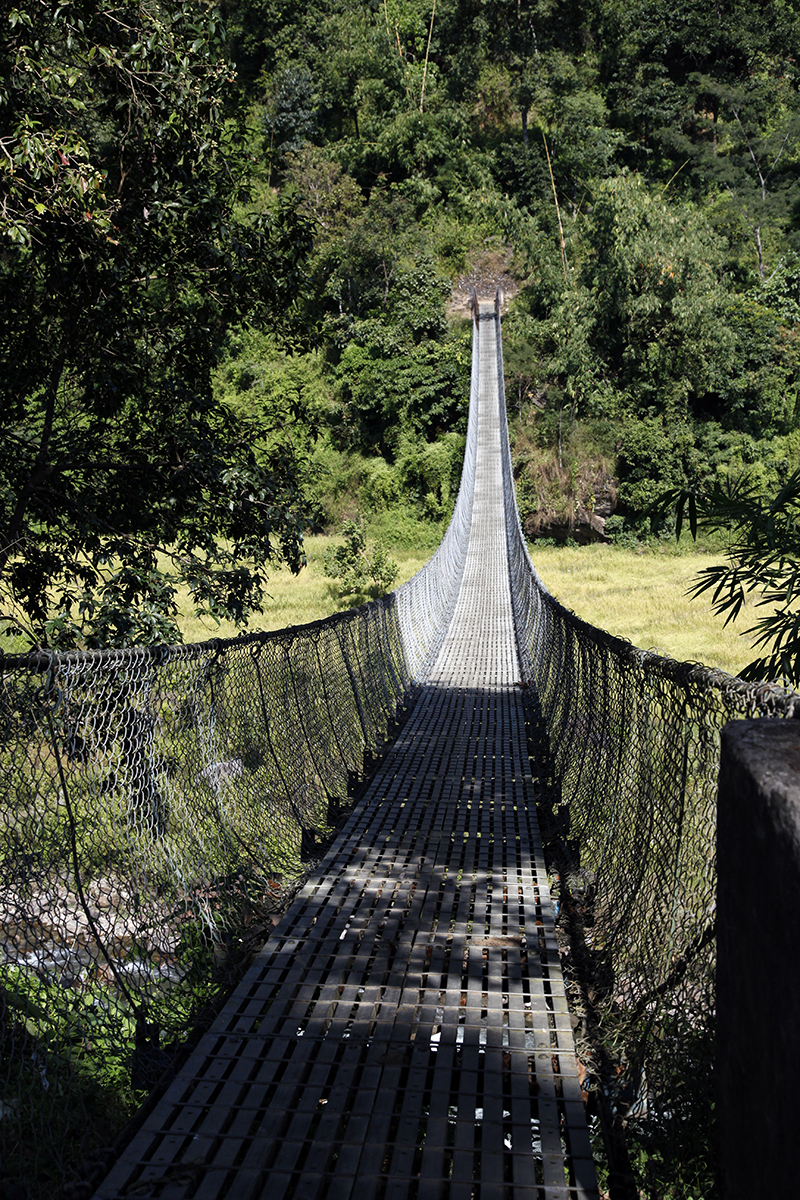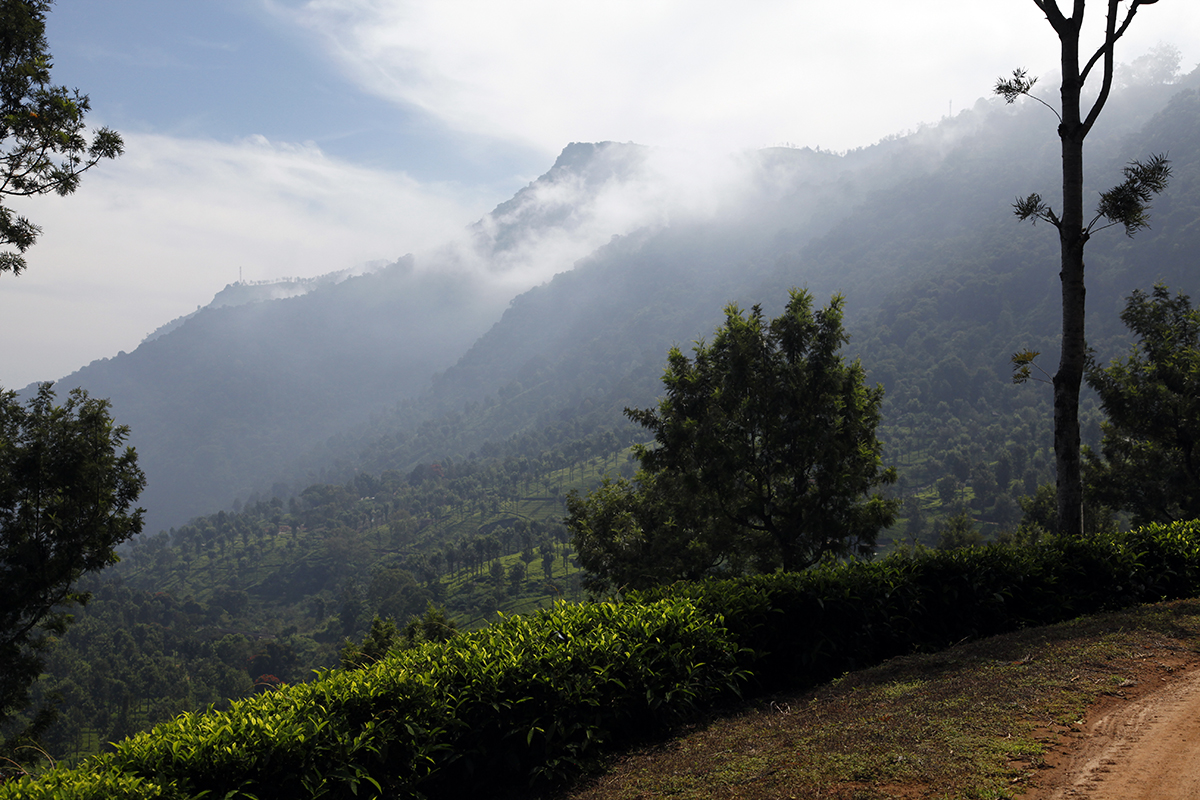With so much focus on the benefits of the vaccination needle, despite its brief sting, I wanted to look at a comparable phenomenon that affects the tea plant, in which momentary “pain” is beneficial. In some parts of the world, such as Taiwan and Darjeeling, a particular insect – a type of leafhopper called Jacobiasca formosana – likes to munch on the leaves of Camellia sinensis. The plant’s chemical response to this attack results in a rare, highly sought-after aroma in the cup. You will find this bouquet in an Oriental Beauty, for example, or a Darjeeling Muscatel. In these regions, farmers actively protect the insect to make sure they visit the plants and eat their leaves.
ARCHIVE FOR 2021
Bridges to better times
On my tea travels, I often come across rope bridges. They let you avoid hours of walking, or wading across rivers. They are solid enough that you sometimes see a horse crossing one, led by the bridle and wearing a packsaddle for carrying tea. A bridge is a transition, and as we start a new year, this rope bridge reminds me of the fragility of the world right now. I hope 2021 offers you bridges to better times.
Invisible horizon
As we enter a new year, it’s difficult to know what lies ahead for the next 12 months. If some psychic had predicted a year ago that the world would grind to a halt and we’d all be wearing masks, we’d have laughed. Yet a lack of visibility is exactly what the tea plant likes; it is happy in the mist, and most of all it loves humidity. It is therefore unperturbed when the horizon isn’t visible. We will find it in good health next year. As for us, we may not be celebrating in the usual way, but I’d simply like to wish you good health!


